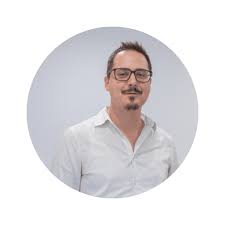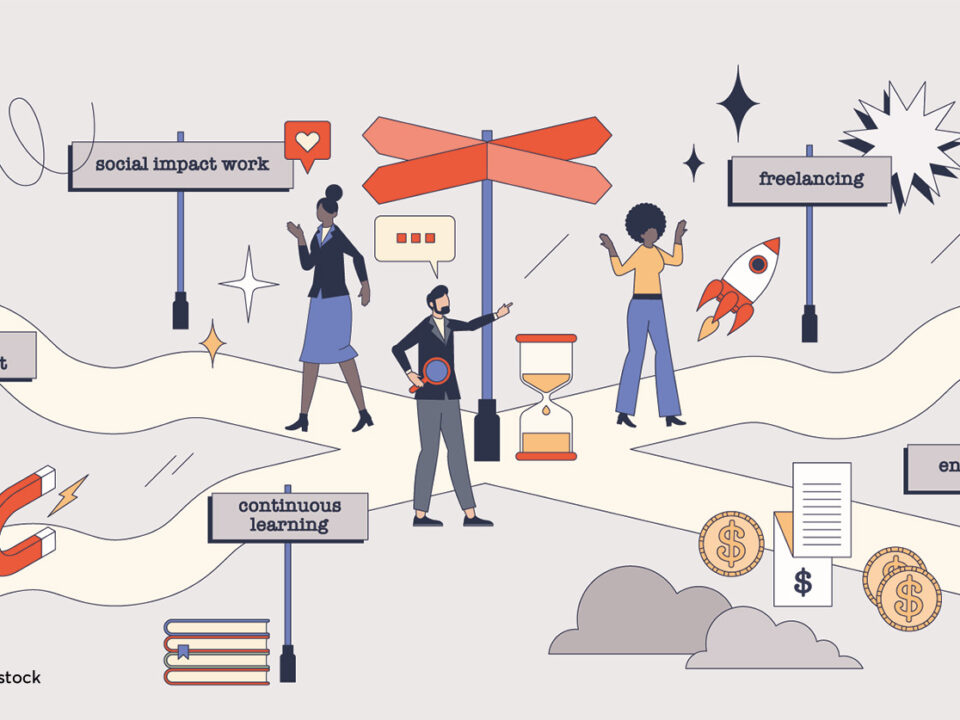Odyssea, the Greek NGO with a significant social impact! Training and employment opportunities for young people from vulnerable groups

In 2014, a group of Greeks living abroad returned to Greece at the peak of the economic crisis to help transform the multitude of social challenges into opportunities. The Future of Work had the pleasure of speaking to the CEO of Odyssea NGO (https://odyssea.com/en/) and award-winning architect and social innovator, Jai Mexis, about the work being done to support vulnerable young people by providing access to training and employment opportunities.

FoW: Welcome Jai! Could you tell us how the idea for Odyssea first came about?
Jai Mexis: At the end of 2014, during the austerity measures and the economic crisis, I returned to Greece after years of studying architecture and living abroad. Few years later, my childhood friend and civil engineer, Loukas Oikonomakis, left London and returned to Greece joining forces to offer our fellow citizens practical solutions to social problems. Odyssea was founded in 2016, and in its first few years of operation, we literally rolled up our sleeves as Odyssea executed high-impact projects that directly responded to the pressing humanitarian needs of the time, such as the creation of social kitchens within the solidarity movement that continue to this day having cooked over 120,000 meals to homeless people.
FoW: What were the early Odyssea projects and their impact?
Jai Mexis: An iconic example of our initial efforts is Lovest, a recycling & upcycling project to transform non-recyclable materials such as life vests and rubber boats, by-products of refugee journeys to Greek shores, into unique value products. By removing 100,000 abandoned life jackets on the island of Chios, recycling 50 tons of plastic, and creating over 12,000 unique products, we solved an environmental problem and helped the unemployed.
One of Odyssea’s first projects, which started in 2017, was Astrolab, the first FabLab for social innovation in Greece. It provided tech training and open access to digital production tools to empower vulnerable groups.
FoW: So how did Odyssea evolve from a digital fabrication lab to an organization providing professional training?
Jai Mexis: The educational aspect of Astrolab gradually evolved into a set of vocational training and entrepreneurship development programmes, responding to society’s growing need to integrate vulnerable, excluded groups. The high quality of skills provided by the programmes soon attracted the business world and gave rise to the need to create a new department, the employability office.
Starting from the analytical, data-driven thinking of engineers, we observe through our field research and studies a lack of innovation in the humanitarian sector and a large gap between technical education and the needs of the labor market. Since the beginning, our compass on this journey has been the value of empowering people away from dependency relationships created both by the provider and the assistance provided. Access to free technical training and quality work become the main pillars of the Odyssea and the driving force of a person’s self-agency.
Today, we are a multidisciplinary team of 20 people and 15+ teachers, offering over 2,000 people a year personalized free vocational training and employability services. We aim to ensure equal opportunities in society, using knowledge for vocational rehabilitation and personal development. The content of the services is tailored to the needs of the labor market, the pulse of which is carried by the companies that have joined our partner network.
FoW: What is the profile of vulnerable young people targeted by Odyssea’s services, and what criteria must they meet to participate in the training programmes?
At Odyssea, we offer support to young people who are struggling to find quality work. They turn to us:
- Unemployed and/or long-term unemployed young people
- Young people on low incomes
- Young people who are long-term unemployed or long-term unemployed or people with low incomes
- Unemployed women
- Single-parent family heads
- Migrants and/or refugees and/or asylum seekers
- People with disabilities
During the selection process, we interview candidates and explore their career choices and the steps they want to take. Candidates who meet the criteria are assessed with a psychometric test, which helps us better understand their personality traits and social skills. A key criterion is the eagerness to learn and the zeal to enter employment. Each candidate works with an employment advisor throughout their training and for 12 months after finding a job.
FoW: Considering the rapidly changing conditions, such as artificial intelligence, green transition and digitalisation, how are your programmes and services selected and designed?
Jai Mexis: Odyssea’s core services are as follows:
Service 1: Vocational training
Beneficiaries attend free training courses to acquire new job skills and ensure employability prospects. The training facilities are fully equipped but flexible enough to allow for immediate reconfiguration when a new course arises. Participants enroll on the course that best suits their personality, talents and ambitions. Courses include tailored vocational training programmes and introductory vocational guidance workshops in various occupational areas such as Tourism, Technology, Business, Manufacturing, Elderly Care, Blue Economy.
The training programs are designed based on the needs of the labour market and are co-designed by experienced professionals in each sector. Our hybrid learning approach combining theory with practice increases learning outcomes and practical engagement while providing participants a truly rewarding learning experience.
Service 2: Employment
We work with young people to guide and support them throughout the process of preparing a job application and connecting them to the market. The stages of the service are as follows:
- Support in the job search by providing career counseling
- Support in preparing for job applications and help to improve performance in interviews by providing training in job search techniques
- Connecting with employers through an expanding network of recruitment agencies
- Guidance and training in life skills with a focus on resilience, teamwork and adaptability to ensure job retention and further career progression.
Service 3: Entrepreneurship
Odyssea’s support for entrepreneurship is also an important pillar of our programmes. We have successfully run three projects in Greece and are now running our first project as part of a strong consortium at EU level. For all graduates of these programmes, Odyssea provides free access and use of all the digital fabrication equipment in our FabLab to support their business development process. Our services:
– Business incubation with tailored training, mentoring and networking opportunities
– Accelerating existing high-risk businesses to address challenges by providing the necessary tools, including administrative and legal support, and access to funding sources.
Service 4: Relief actions
Odyssea organizes various events and activities that support vulnerable people and create opportunities for personal and social impact. These activities are a key representation of our identity and vision for a more humane, inclusive society. We provide immediate relief to the most vulnerable and create the conditions of rights to empower them and break the cycle of social exclusion. Our actions:
- Social kitchen
- Providing goods to vulnerable families
- Mobile medical care unit
FoW: How many people in total have you benefited so far with your projects? Can you share statistics such as the number of participants and the success rate of integration into the labour market?
Jai Mexis: To date, Odyssea has provided individualized services to more than 5,500 people. Approximately 3,000 have participated in the training programs, and over 2,000 have been integrated into the labor market. The absorption success rate is close to 43%.
Participant analysis shows that 42% are vulnerable Greeks, and we are particularly proud of the equal gender representation in all our services.
We have focused on building partnerships with business community representatives and civil society members to ensure this success continues. Our network of companies has more than 300 members, and we maintain a steady flow of referrals from public educational and constitutional bodies and from all the major NGOs in the country.
FoW: How do you manage and monitor the results of your programs? Are there specific mechanisms or tracking tools that you use to monitor the progress of the individuals involved?
Jai Mexis: Noting the lack of a data-driven decision-making approach in many civil society organizations , Odyssea is differentiated in that it relies on data collection and detailed data capture to design well-documented processes to better respond to demanding actions and adapt quickly to change. In this context, we have designed and developed the Odyssea Platform, a digital tool that helps us organize and monitor our work and measure our impact, with transparency and a focus on accountability. This enables us to share valuable data and good practices with our donors, the labor market and other stakeholders in the humanitarian ecosystem.
FoW: There are many job search platforms today. How does the Odyssea Talent platform differentiate itself from existing job search platforms, and how does it connect beneficiaries with jobs effectively?
Jai Mexis: Odyssea’s Talent Acquisition and placement of candidates in the workforce? The Odyssea Talent Platform is a means to address two related socio-economic issues, the growing labor market needs and the high unemployment rate, innovatively. The development of the Odyssea Talent Platform includes artificial intelligence technology, gamified psychometrics, a community of supporters, a video presentation, automated resume-building functions and other cutting-edge technological tools.
Full accessibility for all platform users is critical, allowing them to move beyond conventional job search approaches based on certifications and work experience. The platform connects talented young people with jobs that match their skills, opening up new horizons for effective career development.
FoW: Concluding our interview, would you like to share with us your future plans? How do you envision developing the programmes in the future, and what initiatives will you take to implement them?
Jai Mexis: We envision making the employability programme 10 times more effective, achieving job profiling and linking our beneficiaries within just one hour. To achieve this, we plan to use AI tools such as natural language processing, machine learning and data analytics to create a personalized profile. At a future stage, our AI-enabled chatbot will provide visitors with career advice, answer their questions, and offer job recommendations based on their skills and interests. Visitors will receive a list of potential job opportunities and assistance applying for them.
Odyssea is establishing a new division in Thessaloniki for the first quarter of 2024. To support this, we are organizing participatory events, field research, and networking initiatives, which help us map the needs of the city’s vulnerable young people and the hiring needs of the companies in tourism and construction. This geographical expansion will broaden the reach of our work to include vulnerable people in Northern Greece. Odyssea is already in discussions with local stakeholders to adapt and transfer its model to 2 more major Greek cities, Heraklion in Crete and Larissa, as well as to cities abroad.
During the last months, Odyssea has been actively involved in networking initiatives with various EU organizations, while at the same time participating in numerous consortia for EU-funded projects. Through these strategic alliances, which we will multiply in the near future, we aim to enrich our holistic approach by assimilating and integrating good practices and policies promoted by the European Union, such as the development of digital and green skills.
The organization’s immediate plans are to form even more strategic alliances with businesses, ensuring our work’s sustainability by fostering a shared vision for community empowerment. These partnerships allow us to leverage the resources and expertise of forward-thinking companies that align with our mission and assist them in their efforts to strengthen their workforce and shape a more inclusive workplace. Central to our technical training will be the tourism and construction sector, where the greatest labor needs are observed, the new green and maritime professions, and professions related to ship repair needs. Equally important is our commitment to increasingly involve government and local authorities as trusted partners, as we recognise their vital role in shaping policies and implementing initiatives for the benefit of society.
Οδύσσεια: https://odyssea.com/
-
 Jai Mexis
Jai Mexis
Architect and Social Innovator. Founder and Director of the NGO Odyssea, and Founder of Olon Design Group, a humanitarian architecture company.



